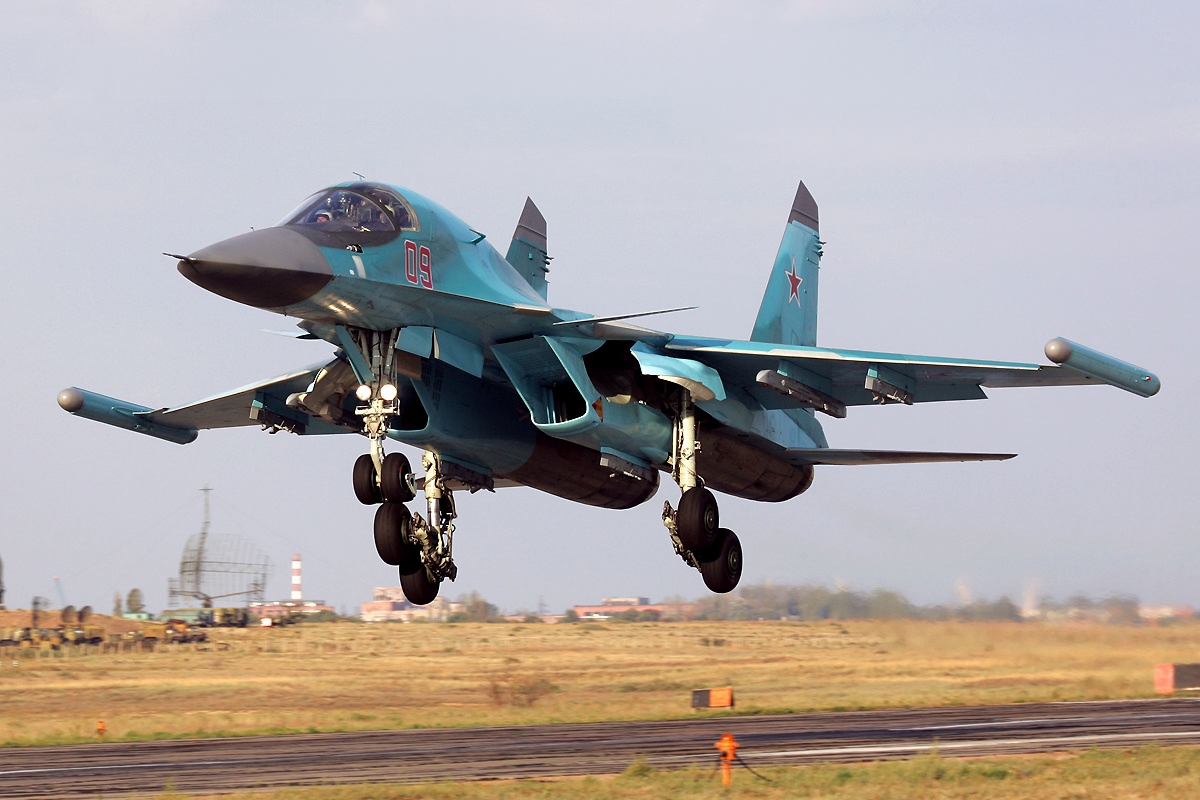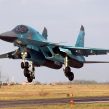
Russia Seeks Further Expansion of Military and Political Influence in Armenia
Publication: Eurasia Daily Monitor Volume: 12 Issue: 210
By:

On November 9, Russia’s Minister of Foreign Affairs Sergei Lavrov traveled to Armenia. The visit was agreed upon shortly before. The next day, President Vladimir Putin ordered the government of Russia to start negotiations with Armenia on establishing a joint regional air defense system (Pravo.gov.ru, November 11). Preliminary consultations concerning the issue were conducted during Armenian President Serzh Sargsyan’s snap visit to Moscow, on September 7, as well as during a Collective Security Treaty Organization (CSTO) summit in Tajikistan, in mid-September.
Few details about the planned treaty are available. However, according to Armenian Deputy Defense Minister Davit Tonoyan, it will extend Russia’s air defense protection to Armenia’s airspace. Future regional security incidents, he pointed out, might involve not only Russian forces deployed at the base in Armenia but also units belonging to Russia’s Southern Military District (Lragir.am, November 12). Russian air force units based in the North Caucasus cannot reach Armenian airspace without flying over a third country. But no information has surfaced to date about plans to engage other regional neighbors in negotiations on that issue, if the planned Russo-Armenian agreement comes into force. Still, it is possible to suggest that military overflight rights may become a pretext for additional Russian pressure on Georgia.
Plans to modernize the equipment of the Russian 102nd military base in Armenia were first revealed two years ago. At that point, Russian sources openly referred to “preparations for engagement against a potential adversary’s rear” (see EDM, April 2). And in November 2014, suggestions were also made that Russia would need direct access to Armenia within one or two years in order to fully utilize the potential of the 102nd military base, so the Georgian government would have to take Moscow’s strategic goals into consideration (see EDM, December 11, 2014).
Russian President Vladimir Putin views the North Atlantic Treaty Organization (NATO) as a potential adversary and has thus been pushing a military build-up along Russia’s periphery and in territories occupied by Moscow, particularly Crimea, (see EDM, March 19). The planned military expansion in Armenia may also be following a similar logic. The head of the Moscow-based Center for Military Forecast, Anatoly Tsiganok, told the Armenian newspaper 168 Zham (168 Hours) that the new joint air defense system’s goal would be containment of NATO—including Turkey and NATO aspirant Georgia—as the Alliance is a source of threat from the Russian point of view. Tsiganok also praised Azerbaijan for, unlike Georgia (sic), not allowing a permanent presence for the North Atlantic Alliance on its territory, and for “drifting away from the NATO in the last two years” (168.am, November 12).
Despite its hostile rhetoric and continued occupation of parts of Georgian territory, Russia is, at the same time, attempting to expand its economic influence in Georgia. The recent offer to increase Russian natural gas exports to Georgia is particularly worthy of attention. The Georgian Ministry of Energy has claimed that, in a few years, the supplies of gas purchased from Azerbaijan might be insufficient to cover Georgia’s needs, and now Russia’s Gazprom is trying to enlarge its currently minimal share of the Georgian market. Negotiations between Georgia’s Energy Minister Kakha Kaladze and Gazprom’s CEO Aleksei Miller have not produced any results so far, yet they are causing tensions in Georgia’s relations with Azerbaijan, as well as unsettling Georgia’s domestic politics (see EDM, November 9). Aside from Russia’s understandable inclination to increase its influence over Georgia by economic means, Moscow’s attempt to lure Tbilisi into a deal with Gazprom may also indicate a determination to prevent supplies of Iranian gas from reaching Georgia, after the lifting of sanctions on the Islamic Republic. In particular, Russia may be trying to convince the Georgian government that there is no alternative to cooperation with Gazprom. Moreover, Russia can be expected to act assertively to prevent any possibility of gas being allowed to transit between the Persian Gulf and the Black Sea coast via Armenia and Georgia (see EDM, September 1).
Regarding Russia’s military presence in Armenia, it may be noted that while the Armenian government continues to act submissively and accepts Moscow’s demands, the ongoing developments are disturbing for independent Armenian experts. For one thing, the agenda of Foreign Minister Lavrov’s recent visit to Yerevan may have included talks on the possible involvement of the 102nd military base in delivering supplies for the Russian operation in Syria. Stepan Grigoryan, the head of the Yerevan-based Analytical Center on Globalization and Regional Cooperation, has argued that the Armenian government should not agree to any kind of involvement in the Syrian war, because doing so might needlessly turn the South Caucasus country into a potential target for the Islamic State or other militant groups fighting in Syria (Lragir.am, November 11). Following the recent downing of a Russian commercial airliner over the Sinai Peninsula (see EDM, November 5), such a warning seems particularly relevant. And indeed, today’s Russia, compared to the Soviet Union during its war in Afghanistan, is less capable of sufficiently securing its own border or—more importantly from Yerevan’s perspective—of effectively protecting its satellites from possible terrorist attacks. Expanding on this argument, David Shahnazaryan, the lead analyst of the Regional Studies Center, further warned that Russia is not willing to protect Armenia’s interests and, if Moscow is unable to break its international isolation, it would in fact prefer to promote a further isolation of Yerevan (Aravot.am, November 10).
In summary, over the coming months, Russia can be expected to act more assertively in the South Caucasus—a region Moscow considers within its zone of “privileged interest.” And in light of last week’s (November 13) deadly string of coordinated terrorist attacks in Paris, Moscow has redoubled its efforts to convince the United States, the European Union and NATO of the need to accept Russia as an indispensable partner in the fight against terrorism. In Russia’s view, this kind of arrangement would deserve and require the relaxation of Western sanctions and a more sympathetic stance by the West on Russian actions to protect its interests in its “near abroad.” Early evidence suggests Russia is already seeing some success in this diplomatic push (TASS, November 15, 18). If Russia’s rapprochement with the West truly takes off, it could free Moscow to further manipulate the Karabakh conflict resolution process and to apply a more assertive “carrot and stick” approach toward Georgia. And beyond the South Caucasus, Russia could be more likely to try to further destabilize the situation in Moldova and Ukraine as well.




